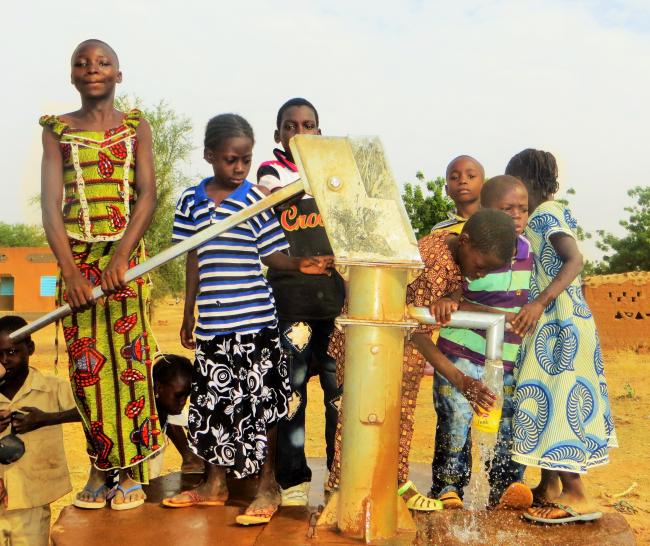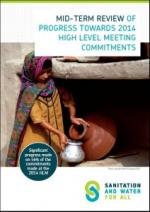Governments and donors have good news about their commitment to the SDGs.
Published on: 04/09/2015

Sanitation and Water for All (SWA), a global partnership of over 90 governments, donors and organisations, reported some good news from its mid-term review this summer: its member countries report significant progress on half of their commitments. The news comes on the eve of the final countdown to the launch of the new Sustainable Development Goals – which world leaders will adopt later this month at the United Nations Summit in New York.
 SWA reports progress on 56% of the 383 commitments tabled by 43 developing countries and 12 donors at a High Level Meeting in 2014. The commitments aim at ensuring sustainability of water and sanitation services. Most of them are meant to be achieved by April 2016. In particular, they concern technical measures such as implementing a national monitoring system, and increasing institutional and human capacity – measures that play an important role in creating sustainable water and sanitation services for all by 2030.
SWA reports progress on 56% of the 383 commitments tabled by 43 developing countries and 12 donors at a High Level Meeting in 2014. The commitments aim at ensuring sustainability of water and sanitation services. Most of them are meant to be achieved by April 2016. In particular, they concern technical measures such as implementing a national monitoring system, and increasing institutional and human capacity – measures that play an important role in creating sustainable water and sanitation services for all by 2030.
The news was announced on the 25th anniversary of the Stockholm World Water Week that took place in August 2015, the most important annual international water event. SWA’s mid-term review comes just before the countdown of the September summit in New York, where world leaders will announce the new and long-awaited Sustainable Development Goals. This new framework of 17 goals to be met by 2030, including ending extreme poverty and hunger and providing access to water and sanitation for all, is expected to revive the global movement for change.
“At the end of the 2014 High Level Meeting, I urged countries and donors to go home and act on their bold commitments,” John Agyekum Kufuor, SWA Chair and former President of Ghana, writes in the review. “I’m encouraged to see that they have done so, and are willing to stand up and be held accountable for this progress. Nonetheless, there is still work to do: our funding does not yet match our ambitions.”
Governments play a leading role in the achievement of the commitments for the goals set by SWA, but also for the new set of development goals. “Parliaments have a critical role in translating the new sustainable development agenda into real improvements for the lives of the world’s people, says the head of the Inter-Parliamentary Union Saber Chowdhury in an interview earlier this week with the UN News Service on the Fourth World Conference of Speakers of Parliament taking place in New York from 31 August to 2 September.
“We are in politics because we want to make a difference in people’s lives. We want to enrich their lives. We want to help them live their dreams and this is the perfect opportunity to do so,” he said. “How parliaments respond to the SDGs, how they buy in, how they implement the SDGs will be critical to its success and implementation.” The conference places particular emphasis on achieving the 17 sustainable development goals due to be adopted.
Funding remains the most urgent problem in achieving universal access to water and sanitation, as in achieving the other Sustainable Development Goals. Catarina Fonseca and Patrick Moriarty of IRC recently said to The Guardian that to have a chance of meeting the goal by 2030, ‘we have to achieve an unprecedented degree of innovation and alignment’. According to IRC, financing mechanisms that blend public and private finance will need to be developed and service delivery models created or adapted, but above all national governments need to take a lead and be held accountable for their own targets.
“There’s promising movement, not least through Sanitation and Water for All that is led by southern governments and brings together a broad group of donors, civil society and private sector actors who are closely monitoring and pushing for progress,” they said. “If we’re to build on this effectively we believe strongly that the next five years will be critical.”
IRC is a member of the 'Research and Learning' constituency of the SWA Partnership and of the SWA Country Processes Task Team (CPTT).